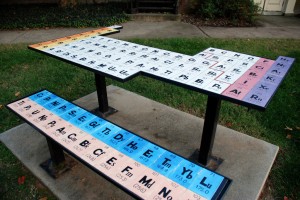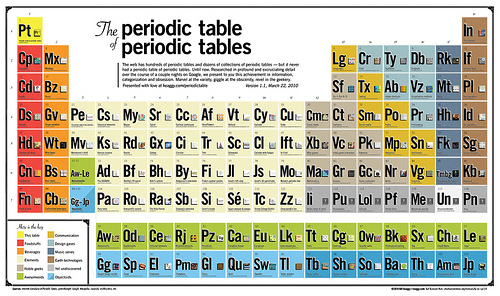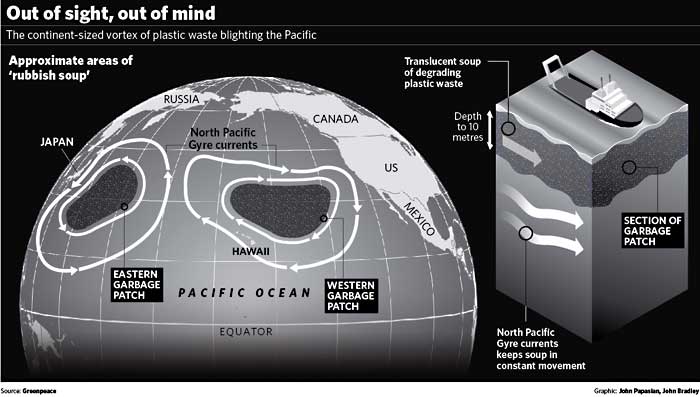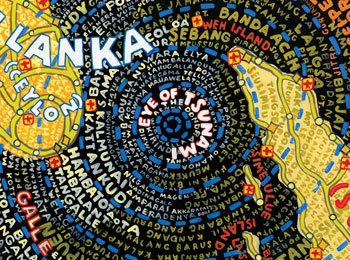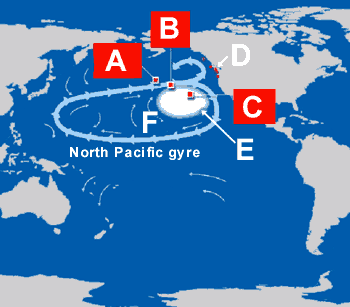The periodic table fad has gone meta, not only with The Periodic Table Table at (Wake Forest University, in North Carolina):
But also with this periodic table of periodic tables1 by keaggy.com:
Before the Periodic Table of the Elements, elements were a chaotic collection of substances with seemingly random and unpredictable masses, melting and boiling points, electrical, chemical, and material properties, and so on. Not only did the periodic table organize the known elements in a way that explained these properties, but it correctly predicted the existence and the properties of undiscovered elements.
All these parodies of periodic tables2 are only funny because this tendency towards scientific organization has totally permeated popular culture. And that’s pretty encouraging.
- For those of you who hate your web browser and want it to crash, there’s also a version of the Periodic Table of Periodic Tables that uses an off-the-shelf Flash app and 217% of your CPU to make a zoomable interface that could be done in about ten lines of CSS & JavaScript, and 0% of your CPU. [↩]
- My very own Periodic Table of the Europeans is at “Eu,” (number 63), smack dab in the middle of the “Awesomeoids” (the green row). Thanks, keaggy. [↩]
